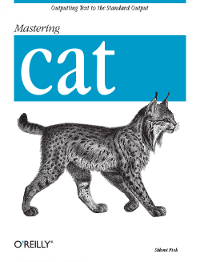I didn't do as well as I'd hoped, but I survived (mostly) and I'm going back for more.
Some things I learned this semester:
- how to create simple and moderately complex programs in Visual Basic, bash, and C
- how to document my code
- how to work with conditional statements, subroutines, loops, functions, and arrays
- how to use server-side includes in a web page
- how to write (simple) algorithms from scratch
- how to do just about anything in bash
- how to take a PC apart and put it back together
- how to install Ubuntu on a laptop
- How you study and prepare for, and how you're evaluated in computer science courses is very different from how you study and prepare for and are evaluated in humanities classes. This should have been obvious to me, but it wasn't. It's even had me questioning whether, when I was an undergrad with a GPA of 3.8, I was even a very good student, because it seems to me that college wasn't very hard for me at all, that my major just wasn't very challenging. (I suppose that might also be true for a lot of mathematically or technically oriented students who bragged about being able to pass a course without ever cracking a book, but couldn't write their way out of a paper bag.)
- Deeply connected to that first point is that time management was a huge issue for me. Too often, I underestimated how much time it would take to complete an assignment or study for exams--there was a lot of late night panic that probably wouldn't have been necessary had I really been better at gauging the time required.
- I realized that I actually do care about my grades, and that it's OK--more than OK--to care about them. I don't really have a lot of respect for my two prior degrees, because despite a stellar academic record (at least on paper), I don't feel as though they've really gotten me all that far, so I'd kind of given up on caring whether I got A's or not. But it turns out that I do care, actually...and if I ever want to get a graduate degree in computer science at Major Midwestern Engineering School, I will have to care, quite a bit. In any case, I think A's in these classes will actually be more of a measure of achievement than the A's I got for my bachelor's and master's in English. Those grades really only measured how well I could snow my professors with my writing ability. These grades really will measure how well I understand and demonstrate tangible, useful skills.
- I can do this stuff. If it takes me a long time, if I feel like I'm swimming through molasses, it's because I've never done it before, not because I'm stupid. If I keep practicing, I will get better. Most of all, I don't need X or anyone else to hold my hand.
- I really need to restructure my life to accommodate both this and my work. Some things are just going to have to go by the wayside. Meals are going to get a lot simpler. Everyday routines are going to have to be a lot more streamlined. There will be no time for sloth or fussing of any sort. This is not a bad thing. I can see now why the uniform of the programmer/developer/computer scientist is a t-shirt and jeans or, in my husband's case, khakis and oxfords. "I don't have to think about what I'm going to wear," he says, standing before his rack of identical white or blue shirts and beige trousers. But I hope to still be able to bake French bread every once in a while. There should be some pleasure to life, after all.


